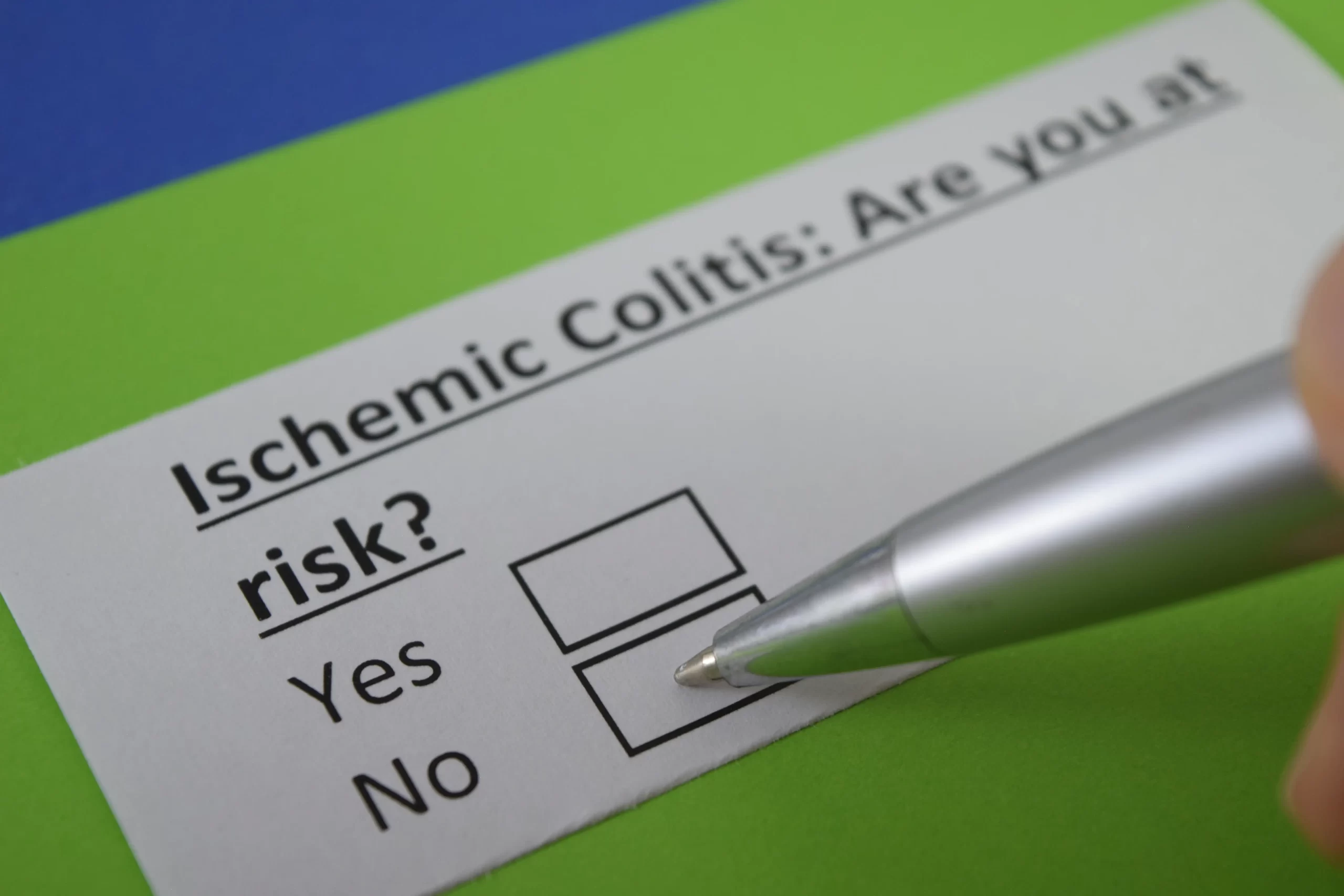Ischemic colitis occurs when blood flow to part of the colon is reduced, leading to inflammation and injury. This condition can range from mild to severe and is most common in individuals over 60 years old.
Causes and Risk Factors
Reduced blood flow to the colon can result from:
- Atherosclerosis (hardening of the arteries)
- Blood clots
- Low blood pressure
- Heart failure
- Dehydration
- Certain medications
- Surgical procedures affecting blood flow
Risk factors include age over 60, cardiovascular disease, diabetes, and smoking.
Symptoms
Symptoms of ischemic colitis can develop suddenly or over time and may include:
- Abdominal pain or cramping
- Bloody diarrhea
- Urgency to have a bowel movement
- Nausea
- Fever
- Bloating
Diagnosis
Diagnosis typically involves:
- Medical history and physical examination
- Imaging tests like CT scans
- Colonoscopy to view the colon and obtain tissue samples
Treatment
Treatment depends on the severity of the condition:
- Mild cases may resolve with rest, hydration, and a liquid diet
- Moderate cases may require hospitalization, intravenous fluids, and antibiotics
- Severe cases with tissue damage may need surgery to remove the affected portion of the colon
Prevention and Outlook
Managing risk factors is key to prevention:
- Control blood pressure and cholesterol
- Stay hydrated
- Avoid smoking
- Exercise regularly
With prompt treatment, the outlook is generally good, but severe cases can lead to complications.
When to Seek Medical Attention
If you experience sudden abdominal pain, especially with bloody stools, seek medical care immediately.
At Granite State Gastroenterology, we’re dedicated to providing comprehensive care for digestive health. If you have concerns about ischemic colitis or other gastrointestinal issues, please contact us to schedule an appointment.

